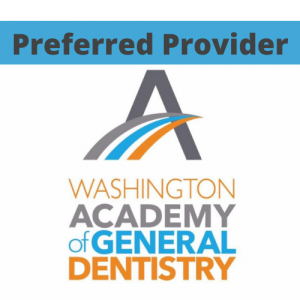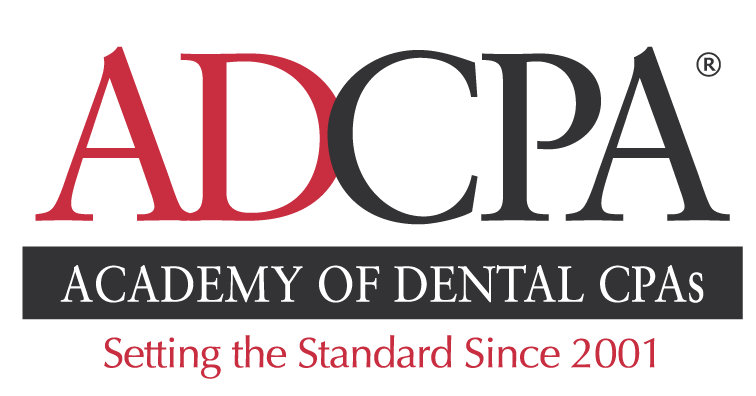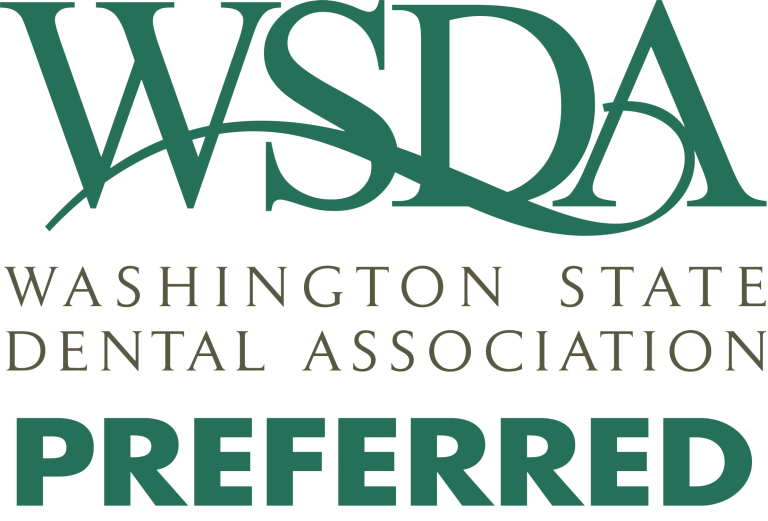ESSB 5814 Tax Guidance for Dental Study Clubs: What Dentists Need to Know Before October 1, 2025
Washington State’s Engrossed Substitute Senate Bill 5814 introduces significant changes to how professional services are taxed, particularly affecting dental study clubs and continuing education presentations. This article provides our interpretation of the new law and practical guidance for navigating these changes while protecting your interests.
Key Tax Changes Effective October 1, 2025
The new law extends retail sales tax to “live presentations,” defined in RCW 82.04.050(3)(l) as:
“Live presentations including, but not limited to, lectures, seminars, workshops, or courses where participants attend either in-person or via the internet or telecommunications equipment that allows audience members and the presenter or instructor to give, receive, and discuss information with each other in real time”
This creates three distinct scenarios for dental practices:
- Study Club Membership Dues: We advise these remain non-taxable (explained below)
- Speaking Fees Paid to Presenters: Must include sales tax
- Event-Specific Attendance Fees: Subject to sales tax
Our Position: Study Club Dues Are Not Subject to Sales Tax
The Dental Accounting Group takes the position that annual study club membership dues should not be subject to retail sales tax, based on careful analysis of ESSB 5814’s language and structure. Here’s our reasoning:
Legal Basis for the Dues Exemption
The statute specifically targets “live presentations” as discrete, identifiable services. Annual membership dues represent a fundamentally different transaction:
- Bundle of Rights Specific Service: Membership dues provide access to multiple benefits including networking opportunities, resource libraries, practice management support, and potential attendance at presentations. They do not constitute payment for any specific “live presentation.”
- Timing Distinction: The law contemplates real-time presentations with defined start and end times. Annual dues are paid without reference to specific events, often before any presentations are
- Allocation Complexity:
- Many study clubs allocate dues across multiple purposes: Administrative costs (30-40%)
- Venue and hospitality (20-30%)
- Materials and resources (15-20%) Speaker fees (15-30%)
Since only a portion relates to presentations, taxing the entire dues amount would exceed the statute’s scope.
Supporting Arguments
The statute taxes “charges for” live presentations, not general membership fees. Just as country club dues aren’t subject to sales tax despite members using taxable facilities, study club dues represent membership in an organization rather than payment for specific taxable services.
No Department of Revenue guidance contradicts this interpretation. Until specific regulations address membership organizations, reasonable interpretations favoring taxpayers should prevail.
Clear Taxable Transactions: Speaker Fees and Attendance Charges
While we defend the dues exemption, two scenarios clearly trigger sales tax obligations:
1. Speaking Fees (Paid to Presenters)
Under RCW 82.04.050(3)(l), any dentist or professional receiving compensation for delivering a live presentation must charge sales tax. This includes:
- Hourly or daily speaking fees Flat-rate presentation charges
- Travel stipends tied to speaking engagements
- Any compensation for real-time educational delivery
Example: Dr. Smith receives $2,000 to present at your study club. She must invoice $2,000 plus applicable sales tax (6.5-10.5% depending on location).
2. Event-Specific Attendance Fees
When charging non-members to attend specific presentations, sales tax applies:
- Single-event registration fees
- Guest attendance charges
- Workshop-specific fees beyond regular dues
Example: Your study club charges $150 for non-members to attend a hands-on workshop. You must collect sales tax on this amount.
Compliance Strategies for Different Scenarios
For Study Club Operators
Current Approach (Until Further Guidance):
- Continue collecting annual dues without sales tax
- Maintain clear documentation showing dues cover multiple benefits
- Segregate presentation costs in your accounting records
When Hiring Speakers:
- Require all speakers to include sales tax on their invoices
- If speakers fail to charge tax, self-report use tax on the untaxed amount
- Document all speaker agreements specifying tax obligations
For Individual Events:
- Any charges specifically for attending presentations must include sales tax
- Create separate fee structures for “membership” versus “event attendance”
For Dentists Who Present
If You Receive Speaking Fees:
- Register for Washington sales tax collection immediately
- Add applicable sales tax to all speaking fee invoices
- Specify on invoices: “Sales tax per RCW 82.04.050(3)(l)”
Calculation Methods:
- Add-On Method: Quote $2,000 + sales tax
- Inclusive Method: Quote $2,130 with tax included (must “back out” tax: $2,130 ÷ 1.105 = $1,927.60 taxable amount; $202.40 tax due)
Exemptions and Special Circumstances
What Remains Exempt
The following are NOT subject to the new retail sales tax:
- Telehealth Services: Patient consultations via video or phone (RCW 04.192(3)(b)(xi))
- Educational Institutions: Presentations by accredited colleges/universities to their students
- Internal Training: Employee education provided without charge
- Pre-Recorded Content: Asynchronous online courses without real-time interaction
Gray Areas Requiring Caution
- Hybrid Events: Mixing business meetings with educational content
- Sponsorship Payments: May avoid tax if not tied to specific presentations
- Material Sales: Books and supplies remain subject to existing sales tax rules
Practical Implementation Timeline
Before October 1, 2025:
- Review Current Structure: Document how your study club operates and allocates funds
- Update Agreements: Revise speaker contracts to specify tax obligations
- Adjust Invoicing: Implement systems to collect tax on taxable transactions
- Communicate Changes: Inform members about new requirements
Ongoing Compliance:
- Track Department of Revenue guidance for updates
- Maintain clear records distinguishing dues from event fees Report and remit collected taxes timely
- Self-assess use tax on untaxed speaker fees
Risk Management Recommendations
Documentation Best Practices
Maintain records showing:
- Membership benefits beyond presentations
- Allocation of dues to various purposes
- Clear separation between dues and event fees
- Speaker agreements with tax provisions
Audit Defense Preparation
The Department of Revenue will likely scrutinize professional organizations. Prepare by:
- Establishing written policies before October 1
- Consistently applying your tax treatment
- Documenting the business purpose of all transactions
- Retaining professional tax guidance
Conclusion and Action Steps
The Dental Accounting Group believes thoughtful structuring can minimize the tax impact of ESSB 5814 on dental study clubs. By distinguishing general membership dues from specific presentation charges, clubs can maintain their current dues structure while ensuring compliance on clearly taxable transactions.
Immediate Actions Required:
- Study Club Operators: Document your dues structure and update speaker agreements
- Presenters: Register for sales tax collection before accepting October engagements. No action is needed if you have historically accepted speaking fees through your dental practice entity, just make note to report speaking fees on your Sales Tax / B&O filing.
We will monitor Department of Revenue guidance and update our recommendations accordingly. This reasonable interpretation balances compliance with practical business operations while we await specific regulatory clarification.
Please contact our office to discuss your specific situation. As your trusted advisors, we’re committed to helping you navigate these changes efficiently and defensively.
Sincerely,
The Dental Accounting Group
Disclaimer: This article represents our current interpretation of ESSB 5814 based on the statutory language and existing Department of Revenue practices. Tax laws and interpretations may change, and specific situations may warrant different approaches. This article is for educational purposes only. Please reach out to your tax advisor accordingly.





